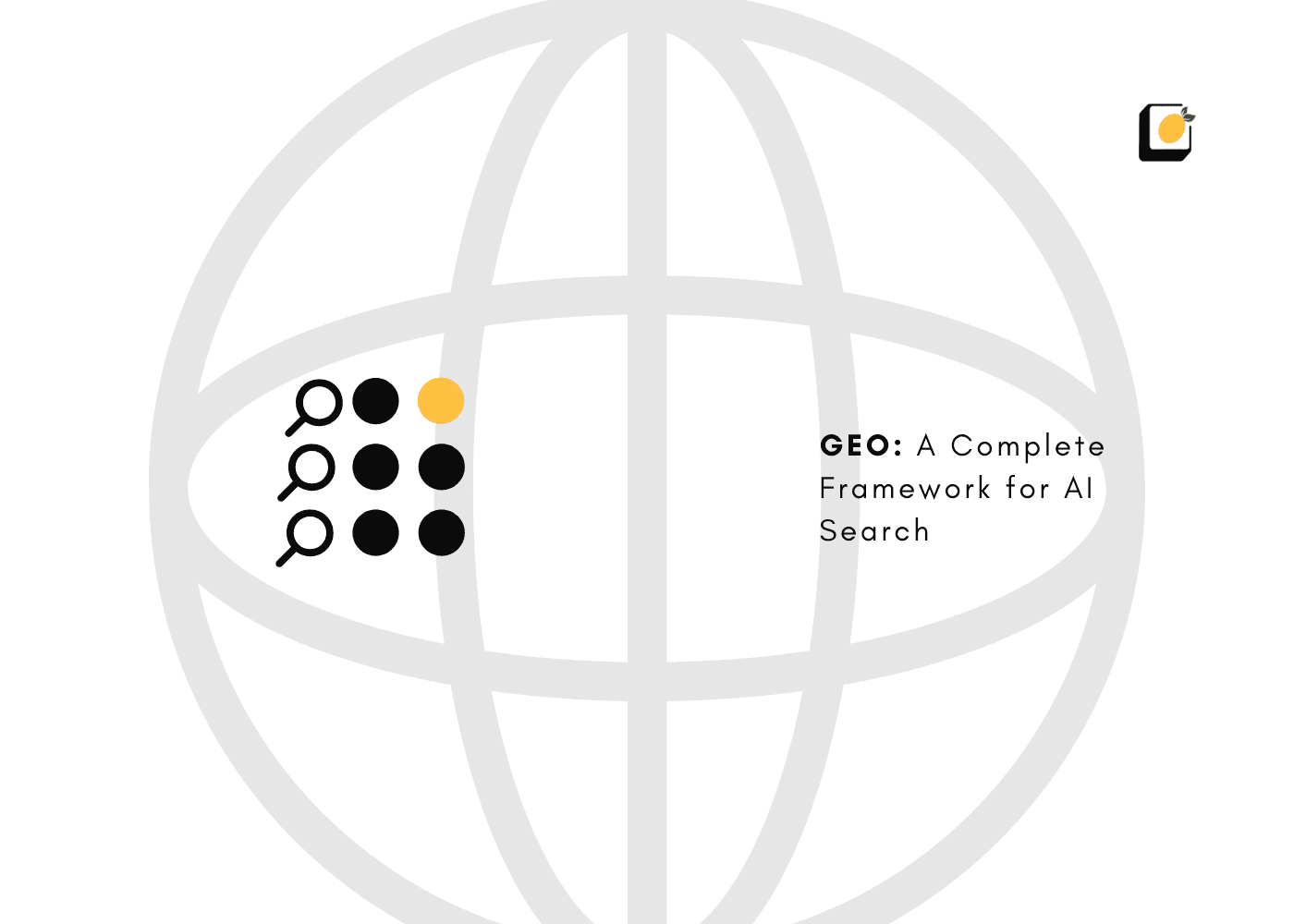What Is SEO Management? The Ultimate 2025 Guide
June 25, 2025
Join 500+ brands growing with Passionfruit!
In today’s digital-first world, showing up on Google isn’t a luxury, it’s a necessity. Whether you’re a startup, a growing e-commerce brand, or an established enterprise, your customers are searching online. But simply having a website isn’t enough. You need to be found, trusted, and chosen. That’s where SEO management comes in a strategic, ongoing process that helps your business stand out in search results, attract the right visitors, and convert them into loyal customers
This comprehensive guide will answer all your questions, break down the latest trends, and how Passionfruit provides actionable insights for mastering search engine optimization management this year.
What Is SEO Management?
SEO management is the practice of planning, implementing, and monitoring your website’s search engine optimization strategy to improve its visibility in search engine results pages (SERPs). It’s not just about chasing rankings, it’s about building a sustainable online presence that drives qualified traffic, increases brand awareness, and supports your business goals.
Think of SEO management as the engine room of your digital marketing. It’s where research, content, technical fixes, and analytics come together to make sure your website is discoverable, user-friendly, and competitive.
Example in Action
Imagine you run an online plant shop. SEO management means regularly updating your product descriptions, publishing care guides, fixing broken links, and tracking which pages bring in the most sales. Over time, these efforts help your shop appear higher in search results for terms like “buy indoor plants” or “succulent delivery,” bringing more plant lovers to your site.
Why Does SEO Management Matter?
Studies reveal that 93% of online experiences start with a search engine, if you’re not visible, you’re missing out on customers.
Organic search drives more than half of all website traffic, making it the most important channel for sustainable growth.
Effective SEO management leads to better rankings, more organic leads, higher conversion rates, and stronger brand authority.
SEO isn’t a one-and-done task. Search engines update their algorithms, competitors adapt, and customer behavior evolves. Ongoing management ensures your site stays ahead of the curve and continues to deliver results.
The Core Pillars of SEO Management
1. Keyword Research & Strategy
Understanding your audience is the foundation. What are their pain points? What questions are they asking? Keyword research tools help you discover the exact terms your customers use, so you can create content that matches their intent.
Example: A SaaS company finds that users search for “best project management tools for remote teams.” By targeting this keyword, they attract highly relevant visitors.
Key Actions:
Use AI-powered tools to uncover high-value keywords and search trends.
Focus on long-tail and conversational queries that reflect real user questions.
Map keywords to the buyer’s journey from awareness to conversion.
2. On-Page optimization
This involves optimizing individual pages for target keywords, improving titles, meta descriptions, headers, and images. On-page SEO also means making sure your content is clear, helpful, and easy to read.
Example: A blog post about “how to care for fiddle leaf figs” gets optimized with relevant keywords, engaging headings, and internal links to related guides.
Best Practices:
Use short, keyword-rich URLs for better performance.
Optimise titles, meta descriptions, and headers with target keywords.
Implement internal linking from high-authority pages to new or important content.
Sprinkle related terms and semantic keywords throughout your content for better contextual relevance.
3. Technical SEO
Technical SEO ensures your website is accessible and understandable to search engines. This includes improving site speed, mobile-friendliness, structured data, XML sitemaps, and fixing crawl errors.
Example: An e-commerce site implements structured data for product reviews, helping its listings stand out with star ratings in Google results.
Key Elements:
Ensure your site is mobile-friendly and loads quickly.
Use structured data and schema markup to help search engines understand your content.
Fix crawl errors, broken links, and duplicate content issues.
Submit sitemaps to Google Search Console and Bing Webmaster Tools for better indexing.
4. Content Strategy &Creation
Content is the heart of SEO. SEO management involves planning, creating, and updating content that answers user questions, solves problems, and builds topical authority.
Example: A travel agency publishes destination guides, travel tips, and packing checklists, each optimized for relevant search queries.
Winning Strategies:
Adopt a content cluster model, create pillar pages supported by in-depth subtopics to build topical authority.
Regularly update your content with new data, trends, and insights.
Showcase real-world expertise through case studies, interviews, and original research.
Address user intent and answer questions comprehensively.
5. Off-Page SEO & Link Building
Building high-quality backlinks from reputable sites signals to search engines that your content is trustworthy. SEO management includes outreach, digital PR, and partnerships to earn these links.
Example: A fintech startup collaborates with industry blogs to publish expert articles, earning valuable backlinks that boost its domain authority..
Effective Tactics:
Earn links through guest posting, digital PR, and partnerships.
Avoid black-hat tactics like link buying, which can lead to penalties.
Build relationships with influencers and industry leaders.
6. Analytics & Continuous Improvement
SEO management is ongoing. Regular monitoring tracks rankings, traffic, conversions, and technical health. Reports highlight what’s working and where to improve, so your strategy evolves with your business and the market.
Example: Monthly reports show which blog posts are driving the most leads, guiding future content investments.
Must-Do Tasks:
Set up Google Analytics and Google Search Console to track traffic, rankings, and technical issues.
Monitor Core Web Vitals and user engagement metrics.
Adjust your strategy based on data, competitor moves, and algorithm updates.
Benefits of SEO Management
Better Rankings: Appear higher for valuable keywords and attract more qualified visitors.
Increased Organic Leads: Reach users actively searching for your products or services.
Cost-Effective Growth: Unlike paid ads, organic traffic doesn’t stop when your budget runs out.
Brand Authority: Consistent visibility builds trust and positions your business as an industry leader.
Improved User Experience: Fast, mobile-friendly, and easy-to-navigate sites keep visitors engaged.
Data-Driven Decisions: Ongoing analysis helps you adapt and stay ahead of competitors.
Step-by-Step: The SEO Management Process
To succeed in your search engine optimization management should follow a structured, cyclical process
1. Audit & Benchmark
Conduct a comprehensive SEO audit covering technical, on-page, and off-page factors.
Benchmark your current rankings, traffic, and conversions.
2. Research & Strategy Development
Analyze your audience, competitors, and keyword opportunities.
Develop a custom SEO roadmap with clear goals, timelines, and KPIs.
3. Implementation
Optimize your website’s technical foundation and on-page elements.
Create and promote high-quality, authoritative content.
Build a diverse and natural backlink profile.
4. Monitoring & Reporting
Track progress with analytics tools and regular reports.
Identify what’s working and where improvements are needed.
5. Continuous optimization
Stay agile, adapt your strategy as algorithms, user behavior, and competitors evolve.
Test new tactics, update content, and refine your site’s technical health.
Advanced SEO Management Trends
SEO is shaped by rapid technological advancements and shifting user expectations. Here are the trends every SEO manager and agency must embrace:
AI & Automation
AI-driven tools are now essential for keyword research, content optimization , and performance analysis. Automation streamlines repetitive tasks, freeing up time for strategic work.
E-E-A-T & Content Authority
Google’s focus on Experience, Expertise, Authoritativeness, and Trustworthiness means your content must be credible, well-researched, and transparently authored.
User Experience & Core Web Vitals
Fast-loading, mobile-friendly, and easy-to-navigate websites are rewarded with higher rankings. Core Web Vitals metrics for loading, interactivity, and visual stability are non-negotiable.
Structured Data & Rich Snippets
Implementing schema markup helps search engines understand your content and can earn you rich results in SERPs, increasing click-through rates.
The Content Cluster Model
Building interconnected clusters of content around pillar topics boosts topical authority and helps answer a broader range of user queries.
Voice & Visual Search
Optimize for conversational queries and structured data to capture voice and visual search opportunities, which are on the rise.
Do You Need an SEO Management Agency?
Managing SEO in-house can be resource-intensive and requires up-to-date expertise. That’s why many businesses partner with a specialized SEO management agency. Here’s what an agency brings to the table:
Expertise: Agencies stay on top of algorithm changes, industry trends, and best practices.
Advanced Tools: Access to premium SEO tools for research, analysis, and reporting.
Scalability: Agencies can scale efforts up or down based on your needs.
Comprehensive Services: From audits to content creation, technical fixes, and link building, agencies handle it all.
When to consider an agency:
You lack in-house SEO expertise.
You need to accelerate results or recover from a ranking drop.
You want to focus on your core business while experts handle your search strategy.
Choosing the Right SEO Management Partner
Not all SEO management agencies are created equal. Here’s how to choose the right one
Proven Track Record: Look for case studies, testimonials, and real results.
Transparent Processes: The agency should explain its methods and provide regular, clear reporting.
Custom Strategies: Beware of one-size-fits-all packages. Your business needs a tailored approach.
Focus on E-E-A-T: The agency should prioritize content quality, authority, and user trust.
Ethical Practices: Avoid agencies that promise instant results or use black-hat tactics.
Final Thoughts
SEO management in 2025 is a dynamic, multi-disciplinary endeavor. It’s about much more than keywords and rankings, it’s about delivering genuine value to users, building authority, and adapting to the ever-changing rules of search. Whether you manage SEO in-house or partner with an SEO management agency, success comes from a commitment to continuous learning, strategic execution, and a user-first mindset.
How Passionfruit Helps You Grow with SEO Management
At Passionfruit, SEO management isn’t just a service—it’s a growth engine for your business. Here’s what sets us apart:
Full-Funnel SEO: We cover technical, on-page, editorial, off-page, and programmatic SEO, ensuring every aspect of your website is optimized for discovery and conversion.
AI-Driven Strategies: Proprietary tools and AI-powered revenue tracking connect SEO actions directly to business results, so you always know what’s working.
Multi-Platform Reach: We optimize for Google, AI-driven search engines, and social platforms, ensuring your brand is everywhere your customers search.
Content That Converts: Our editorial team produces high-impact, SEO-optimized content that builds authority and drives leads.
Transparent Reporting: Real-time dashboards and clear KPIs keep you informed at every step.
Ready to turn your website into a growth machine?
Contact Passionfruit today and let’s build a strategy that drives real business results.
FAQ
What is SEO management and why is it important?
SEO management is the ongoing process of planning, executing, and refining a website’s SEO strategy to improve its visibility in search engine results. It combines technical, creative, and analytical tasks to help your site rank higher for relevant searches, attract qualified visitors, and provide a better user experience. In today’s competitive digital landscape, effective SEO management is essential for driving organic traffic and staying ahead of competitors.
What are the core pillars of SEO management?
The main pillars include keyword research and strategy, on-page optimisation, technical SEO, content creation and authority building, off-page SEO and link building, plus analytics and continuous improvement. Each pillar addresses a specific aspect of making your website more discoverable, trustworthy, and user-friendly, ensuring long-term growth and higher search rankings.
How does the SEO management process work step by step?
The process starts with a comprehensive audit and benchmarking of your current site. Next comes research and strategy development, where you analyse your audience, competitors, and keyword opportunities. Implementation follows, focusing on technical and on-page optimisation, content creation, and link building. Ongoing monitoring and reporting track results, and continuous optimisation ensures your strategy adapts to changes in algorithms, user behaviour, and competition.
What trends are shaping SEO management in 2025?
Key trends include the use of AI and automation for keyword research and content optimisation, a strong focus on E-E-A-T (Experience, Expertise, Authoritativeness, Trustworthiness) in content, prioritising user experience and Core Web Vitals, implementing structured data for rich snippets, building content clusters for topical authority, and optimising for voice and visual search. These trends help websites stay relevant and competitive in search results.
When should a business consider hiring an SEO management agency?
A business should consider an agency if it lacks in-house SEO expertise, needs to accelerate results, or wants to recover from a ranking drop. Agencies offer specialised knowledge, access to advanced tools, scalability, and comprehensive services such as audits, content development, technical fixes, and link building. This allows businesses to focus on their core operations while experts handle their SEO strategy.
How do you choose the right SEO management agency?
Look for an agency with a proven track record, transparent processes, and custom strategies tailored to your business needs. Prioritise those who focus on content quality and user trust (E-E-A-T), avoid black-hat tactics, and provide clear, regular reporting. The right partner will help you achieve sustainable search visibility and long-term growth.















